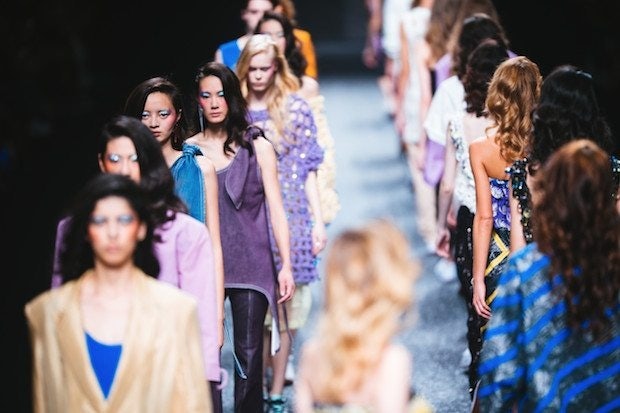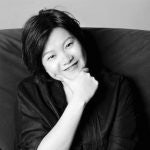
Welcome to Jing Daily's first installment of Hung Huang's new Q&A column!
Each week, readers will be able to submit questions directly to Hung Huang about a topic related to luxury and fashion in China. To kick off the first column, Jing Daily asked Hung for her thoughts on China's recently concluded fashion weeks.
The first topic for reader-submitted questions will be China's luxury e-commerce market. With the recent conclusion of the Singles' Day e-commerce holiday in China and America's Black Friday and Cyber Monday (which are increasingly important to the Chinese e-commerce market), luxury brands are thinking carefully about their China e-commerce strategies. Now is your chance to ask Hung anything you wanted to know about luxury e-commerce in China, from platforms such as Tmall to the logistics of shipping.
Submit your questions on Twitter (mention @JingDaily with hashtag #AskHungHuang), Facebook, or Weibo (mention @JingDaily精日传媒 or @洪晃ilook with hashtag #AskHungHuang#), or email contact@jingdaily.com.

What differences have you noticed between Shanghai Fashion Week and Beijing Fashion Week?#
To put it in a nutshell, Beijing has money; Shanghai has style. Beijing is Chinese; Shanghai is international.
Beijing participants are the biggest fashion names in China. They are sizable companies and well capitalized. Some built their business on OEM (original equipment manufacturer) orders; others have successfully morphed into significant local brands in fashion. Mostly, they are companies with hundreds of millions in sale.
Shanghai is more international and cosmopolitan because most runway designers are small independent designers. Many have studied abroad and decided to come back to China to start their own business. In that sense, their designs are more international and contemporary.
How helpful do you think the recently concluded Beijing Fashion Week was in linking designers with serious buyers?#
I think the Beijing show was never really aimed at buyers; most of the brands shown during the week have already opened boutiques around China. Many of them invite their franchisees/buyers to the show.
Shanghai is catered to the kind of buyer in the Western sense: i.e. boutique owners and multi-brand store owners.
What differences did you notice between the Fashion Now event in Beijing and the official Beijing Fashion Week?#
Fashion Now is a taste of Shanghai in Beijing; it shows several independent designers based in Beijing.
Do you think one of China’s fashion weeks will ever reach the caliber of the current “big four” fashion weeks (London, Paris, New York, Milan)?#
I think the real question is "how will fashion week evolve in the digital age?" There is no gold standard for fashion week.
Who were some of the standout designers this season?#
Hard to say; I missed the show, but I hear Ban Xiaoxue was phenomenal.